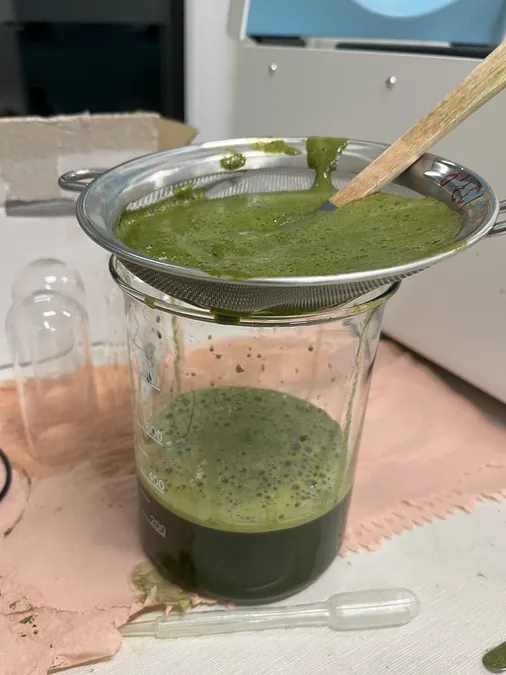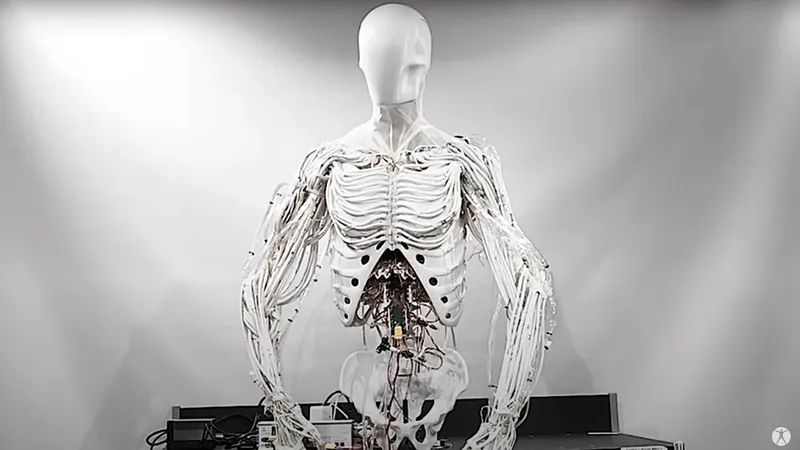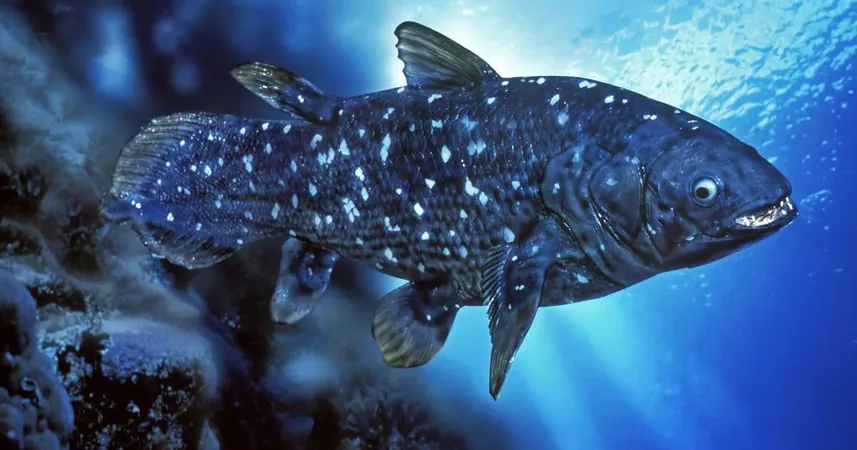
Game Changer: Biorefining Makes Grass the Next Superfood for Livestock!
2024-11-08
Author: Nur
In a groundbreaking development for the agricultural industry, researchers have unveiled a biorefining process that could transform grass into a vital, digestible feed for pigs, chickens, and even fish. Currently, grass primarily serves as an animal feed for cows and other ruminants, thanks to their complex stomach systems designed to break down tough plant fibers. However, this innovative biorefining technique is set to revolutionize how we approach animal nutrition, making it possible for non-ruminants to reap the benefits of grass.
The biorefining process begins with grass undergoing rigorous treatment via a screw press, which releases a wealth of nutrients from the plant cells along with a nutrient-rich liquid. This process effectively concentrates grass proteins into a form that is digestible to animals with simpler stomachs, marking a significant shift in feed production.
Norway's Grass Abundance
Did you know that more than half of Norway's agricultural output is grass? At the recent opening of Norway’s first pilot plant for green biorefining at Tuv experimental farm in Steinkjer, Audun Korsæth, Director of the Division of Food Production and Society at the Norwegian Institute of Bioeconomy Research (NIBIO), emphasized the country's rich grass resource combined with the abundant seaweed along the Norwegian coast, which boasts up to 30% protein content. This dual approach aims to sustain the biorefinery's operation throughout the year.
“There is an urgent need for innovative feed materials in fish farming and livestock production, and this biorefining process meets those requirements effectively,” noted Gjermund Bahr, Senior Advisor at NIBIO. His insights come from years of experience in the aquaculture sector, highlighting how this process enriches animal feed with essential nutrients.
Learning from Denmark
The pilot plant was developed in collaboration with researchers from Aarhus University in Denmark, who have successfully established several commercial biorefining plants. Their past trials have already produced promising results, particularly for chicken and pig feeds derived from grass. “In trials with pigs, we found that a grass-based concentrate containing 47% crude protein could be incorporated into their feed without compromising meat quality. More recently, we’ve confirmed that we can effectively substitute soy,” shares Lene Stødkilde-Jørgensen, a researcher from Aarhus.
Continuing with such pioneering trials, NIBIO is also exploring the effects of this new feed on chickens and dairy cattle. Research Scientist Haldis Kismul mentions that dairy cows at Mære Agricultural School in Steinkjer are currently being fed pulp—the fibrous residue left over after the biorefining process. “We expect the milk output to remain consistent whether fed pulp or standard silage. However, it’s possible that cows may take less time to digest the pulp, potentially reducing methane emissions,” adds Kismul.
Challenges Ahead
While these advancements are promising, researchers caution that more studies are necessary before grass-derived feed becomes a viable alternative. Currently, in Denmark, grass protein is priced two to three times higher than imported soy. “The feed industry requires large, consistent volumes of protein, and the challenge remains to produce grass-based feed that is economically attractive for farmers,” says Kari Ljøkjel, Managing Director of Felleskjøpet Feed Development.
Researchers are even considering how to create high-value products from byproducts of the biorefinery process, further maximizing the utility of grass as a raw material.
Exciting Future Prospects
Steffen Adler, project leader for “One Crop Two Diets,” expressed enthusiasm for the research opportunities presented by the new biorefinery plant, which is expected to play a crucial role in various national and international research initiatives. “This facility will not only act as a hub for innovation but can also serve as a demonstration site for industry collaboration. The potential is limitless, and we are eager to see what unfolds in the future,” he noted.
What You Should Know About Green Biorefining:
- **Main Products and Byproducts**: The biorefining process generates numerous products, including green protein concentrate, which can be a significant protein source for livestock and fish.
- **Versatile Applications**: Grass whey is useful for biogas production and as a fertilizer, while fiber pulp can be applied in various sectors, including construction materials and textiles.
This innovative movement is set to challenge conventional animal nutrition and pave the way for sustainability in agricultural practices. Are you ready for grass-fed everything?


 Brasil (PT)
Brasil (PT)
 Canada (EN)
Canada (EN)
 Chile (ES)
Chile (ES)
 España (ES)
España (ES)
 France (FR)
France (FR)
 Hong Kong (EN)
Hong Kong (EN)
 Italia (IT)
Italia (IT)
 日本 (JA)
日本 (JA)
 Magyarország (HU)
Magyarország (HU)
 Norge (NO)
Norge (NO)
 Polska (PL)
Polska (PL)
 Schweiz (DE)
Schweiz (DE)
 Singapore (EN)
Singapore (EN)
 Sverige (SV)
Sverige (SV)
 Suomi (FI)
Suomi (FI)
 Türkiye (TR)
Türkiye (TR)